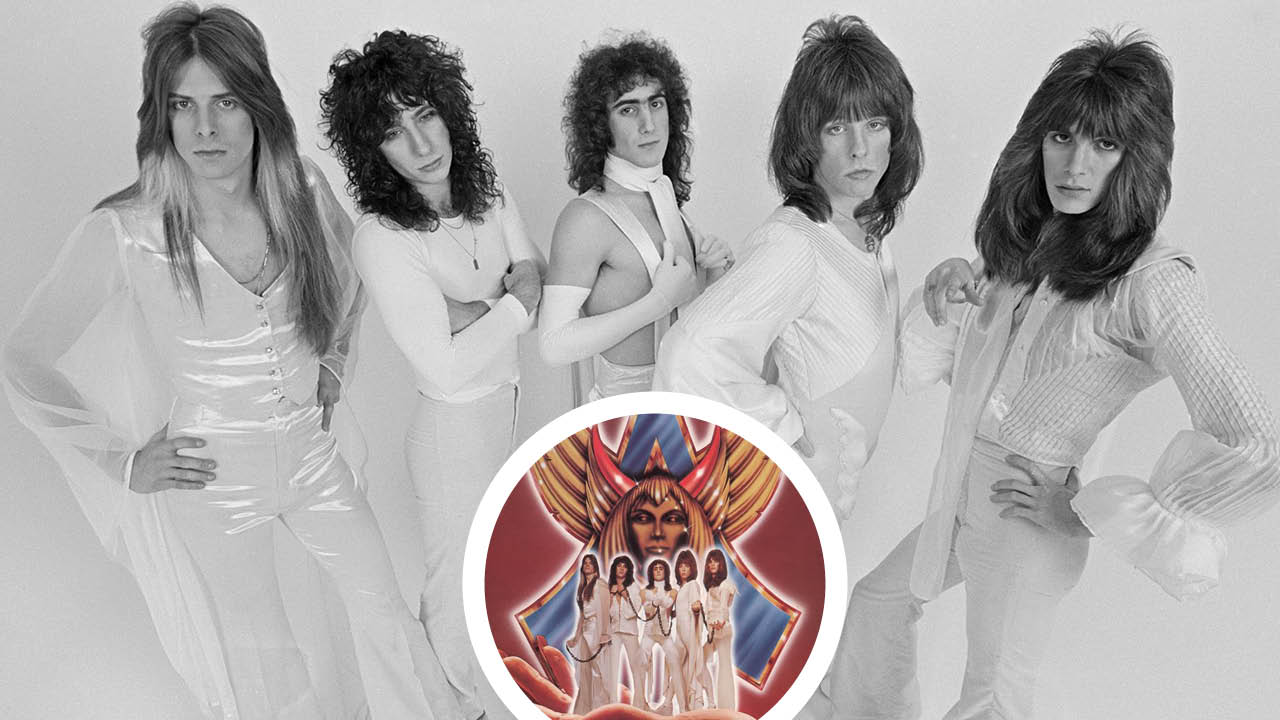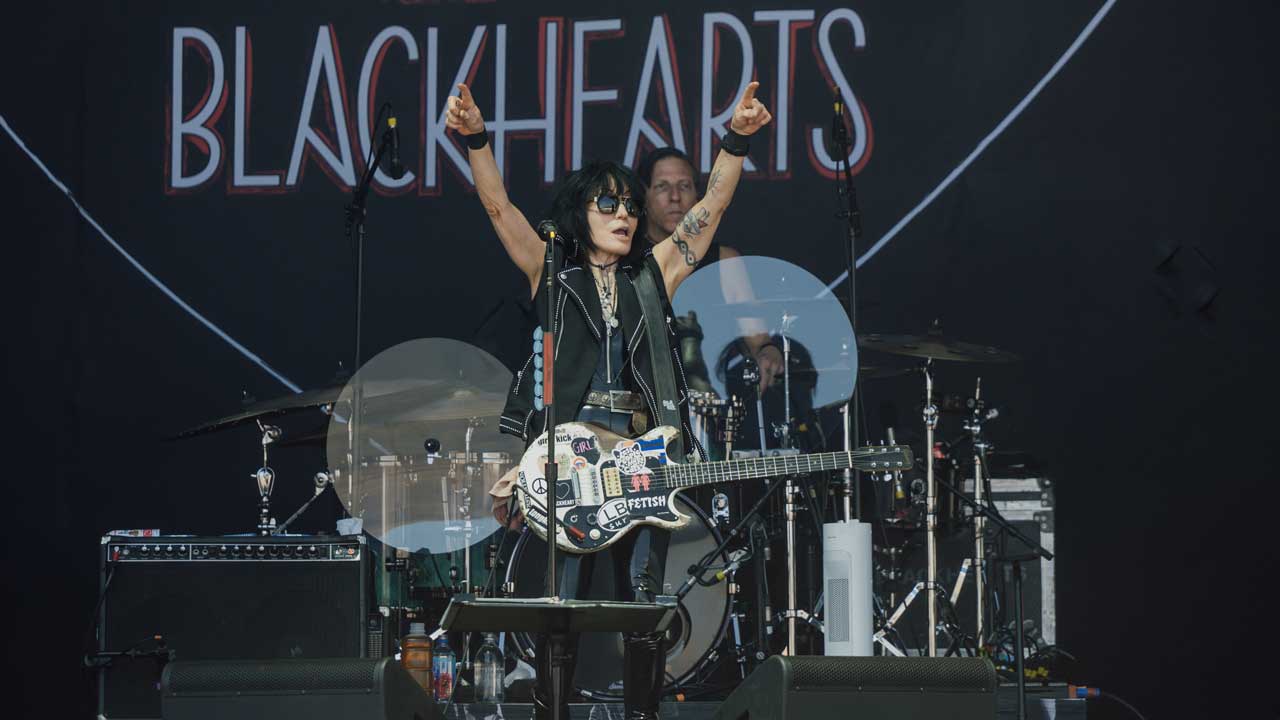“We got caught up in the hype. Maybe another label would have given us a clobber round the head”: how Angel delivered a 70s pomp rock classic with Helluva Band
Angel were tipped to become the next Kiss. That didn’t happen, but they still delivered a lost treasure with 1976’s Helluva Band album

Angel’s second album, Helluva Band, was – and remains – a quality record, containing, in The Fortune, one of the best songs the quintet ever recorded. It highlighted just how motivated and well-oiled the group had become since leaving their slot as house band at Washington DC’s Bogies nightclub on America’s East Coast for the much sunnier climes of LA on the opposite side of the US.
They were formed in 1974 by the former Bux duo of guitarist Punky Meadows and bassist Mickie Jones with keyboard maestro Gregg Giuffria (a native of Gulfport, Mississippi, who had previously opened for The Who and Jimi Hendrix with his former band Flower Power and had also played with Capitol recording artists David And The Giants), drummer Barry Brandt and vocalist Frank DiMino.
Angel had come to the attention of David Joseph at the Gem-Toby Organisation, who swiftly added the group to a management roster that at the time also included the New Seekers and the Hudson Brothers. A deal with Casablanca Records ensued, an event that rather sealed Angel’s fate in terms of forever being compared to label-mates Kiss. Of course, Kiss bassist Gene Simmons is often credited as having discovered Angel after catching them play at the aforementioned Bogies, but it was David Joseph – having previously negotiated a contract for the Hudson Brothers with Casablanca and also involved to a degree in Donna Summer’s career during that period – who was most instrumental in alerting Casablanca label boss Neil Bogart to the group.
Completely eschewing the Hollywood club scene, with their self-titled first album just released, Angel made their live debut as Casablanca recording artists opening for Robin Trower at the Aragon Ball Room in Chicago. However, due to problems in setting up their equipment, Angel over-ran and were only able to finish their set thanks to tour manager Bill Schereck, who at the risk of a beating, prevented the plug being pulled by the promoter. As a result Schereck put his crew through an arduous boot camp in order to avoid any repetition of such an event.
Still, no sooner had the group begun playing shows in support of the first record, that word came through from the label that a second album was required. “We did a lot of writing and recording demos while we toured after the first album was released,” recalls Frank DiMino. “We had a lot of songs ready to go, so we went right back into the studio to do Helluva Band as soon as we got back off the road, although some of those songs were written while we were in pre-production for the album. In fact, we did a couple of shows with Journey in the middle of recording.”
Indeed, the band continued to play various dates in early 1976, mainly in the Midwest and on bills opening for Ted Nugent, Journey and Aerosmith prior to the release of Helluva Band.
Sticking with the same production team of English ex-pats Derek Lawrence and Big Jim Sullivan, who they had worked with on the debut record, Angel also utilised the same recording facility: Wally Heider’s in Hollywood. Former Deep Purple producer Lawrence and legendary session guitarist Sullivan had been engaged by Casablanca to produce that first album. Sullivan (who passed away on October 2, 2012) recalled: “Our job was to get the best out of the guys in the studio. The thing is, they really didn’t need a lot of guidance from us… they were such a complete unit that anything that came from us was only going to be embellishments to what they already had.”
Sign up below to get the latest from Classic Rock, plus exclusive special offers, direct to your inbox!
Indeed, when it came to the recording of Helluva Band, Gregg Giuffria couldn’t comprehend why Lawrence and Sullivan had been employed again as he felt that the band members were more than capable of doing the job themselves. Interestingly, Sullivan once told me the only disagreement that he could remember having with any of the band members was with Gregg. “That was when we were recording the introduction to The Fortune,” Big Jim noted. “I think that’s what the nice thank-you credit was about on the album cover.”
Easily the highlight of the entire album, The Fortune is a truly gargantuan piece that picks up the gauntlet thrown down by the pomp theatrics of Angel’s debut album. Led by Giuffria’s haunting keyboard intro, it has always been acknowledged by the band that more care was taken over this track than the rest of the album. “The Fortune was a continuation from Tower on the first album,” states Gregg. “It was actually a hold-over from that record. It was a statement. It was about that eternal quest. We played it live in the studio.”
It is – the ballad Feelings aside – also the last great Angel epic, as even on this album it was clear there was a definite shift towards shorter, more accessible songs – the likes of Anyway You Want It and Feelin’ Right are prime examples. Yet there are the great, Purple-esque hard rockers still evident too, with Mirrors and Pressure Point finding Punky Meadows and friends putting the pedal to the metal. “Deep Purple were a big influence,” acknowledges Giuffria.
With the Jeremy Railton-designed album cover building upon his own impressive, original head-logo artwork on the front of the debut LP (the iconic ambigram logo, conceived by Bob Petrick, would make its debut on the band’s next album, On Earth As It Is In Heaven), Helluva Band found Angel depicted sporting their infamous all-white clothing for the first time, though DiMino states they had adopted the image from that first gig with Trower.
The Helluva Band tour opened in Santa Monica on June 21, 1976 and continued on through to November with the band opening for Blue Öyster Cult, Rush, Black Oak Arkansas and Rainbow. The band’s over-the-top stage show – that involved each member of the band magically materialising on stage at the beginning of the show and seemingly disappearing into thin air at the end of it (not to mention the use of a talking hologram nicknamed George) – was nine months away but in December they were voted Best New Band in Circus mag’s end-of-year readers’ poll. Expecting great things, Helluva Band’s sales didn’t, however, match their popularity as an exciting new live act. The musical momentum was lost and Angel got sidetracked by the hype.
Giuffria has the last word: “We got caught up in it. Maybe another label would’ve given us all a clobber around the head, but despite all that I am most proud of the fact that we didn’t lose our minds completely!”
Originally published in Classic Rock Presents AOR issue 4
A resident of Germany in the late 1970s, Dave Reynolds returned to the UK a full-on metalhead thanks to life-changing exposure to Kiss, Angel, Cheap Trick, Van Halen and Status Quo. Arriving home with the NWOBHM in full swing, he would go on to write for Classic Rock, Metal Hammer, Metal Forces and AOR. He is a co-author of the International Encyclopaedia Of Hard Rock and Heavy Metal.
